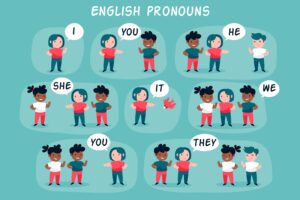Nesse vídeo eu compartilho com você uma técnica prática e eficiente pra usar dois verbos juntos em frases em inglês. Fica ligado(a)!
Então, se você ainda é iniciante, pode assistir esse vídeo tranquilamente que você vai sair dele já criando suas frases com dois verbos SOZINHO(A).
Se você veio aqui procurando saber mais sobre frases em inglês com dois verbos juntos, os verbos no gerúndio e os verbos no infinitivo, você veio ao vídeo certo!
Então, assista até o final, comente aqui embaixo para eu saber que você gostou do conteúdo, e se inscreva lá no canal, caso você não seja inscrito ainda!
Conforme prometido no vídeo, segue abaixo as nossas listas de verbos! 👇
Lista de verbos seguidos por gerúndio
Exemplo: He misses playing with his friends.
abhor
acknowledge
admit
advise
allow
anticipate
appreciate
avoid
be worth
can’t help
celebrate
confess
consider
defend
delay
detest
discontinue
discuss
dislike
dispute
dread
endure
enjoy
escape
evade
explain
fancy
fear
feel like
feign
finish
forgive
give up (stop)
keep (continue)
keep on
mention
mind (object to)
miss
necessitate
omit
permit
picture
postpone
practice
prevent
put off
recall
recollect
recommend
report
resent
resist
resume
risk
shirk
shun
suggest
support
tolerate
understand
urge
warrant
Lista de verbos seguidos por um infinitivo
Exemplo: She threatened to quit if she didn’t get a raise.
agree
appear
arrange
ask
attempt
beg
can/can’t afford
can/can’t wait
care
chance
choose
claim
come
consent
dare
decide
demand
deserve
determine
elect
endeavor
expect
fail
get
grow (up)
guarantee
hesitate
hope
hurry
incline
learn
manage
mean
need
neglect
offer
pay
plan
prepare
pretend
profess
promise
prove
refuse
remain
request
resolve
say
seek
seem
shudder
strive
struggle
swear
tend
threaten
turn out
venture
volunteer
wait
want
wish
would like
yearn
Lista de verbos seguidos por gerúndio ou infinitivo, com pouca mudança de significado
Exemplo: It started to rain. / It started raining.
begin
can’t bear
can’t stand
continue
hate
like
love
prefer
propose
start
Lista de verbos seguidos por gerúndio ou infinitivo, com mudança de significado
| forget | I forgot to meet him. (I didn’t meet him because I forgot to do it.) I forgot meeting him. (I don’t have the memory of meeting him before.) |
| go on | He went on to learn English and French. (He ended one period of time before this.) He went on learning English and French. (He continued learning the languages.) |
| quit | She quit to work here. (She quit another job in order to work here.) She quit working here. (She quit her job here. She doesn’t work here anymore.) |
| regret | I regret promising to help you. (I’m sorry that I made the promise.) I regret to tell you that we can’t hire you. (I’m telling you now, and I’m sorry.) |
| remember | She remembered to visit her grandmother. (She didn’t forget to visit.) She remembered visiting her grandmother. (She had memories of this time.) |
| stop | I stopped to call you. (I interrupted another action in order to call you.) I stopped calling you. (I stopped this activity. Maybe we had a fight.) |
| try | I tried to open the window. (I attempted this action but didn’t succeed.) I tried opening the window. (This was one option I sampled. Maybe the room was hot. |
Forte abraço,
Rod Krebs.






